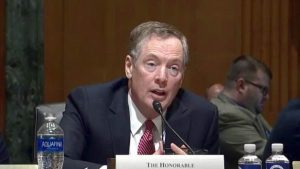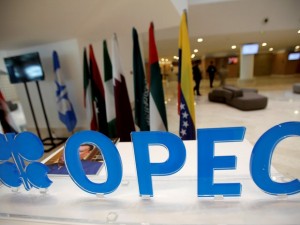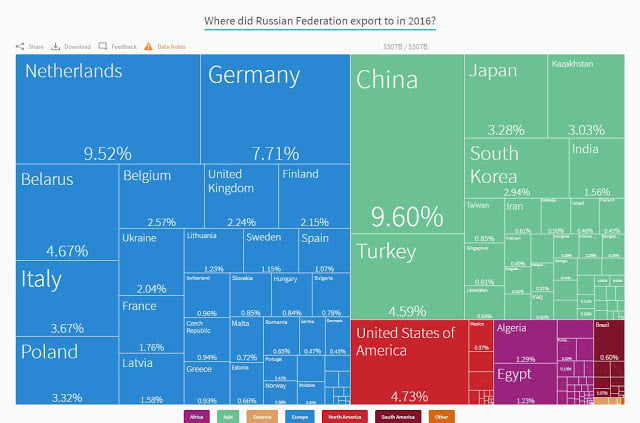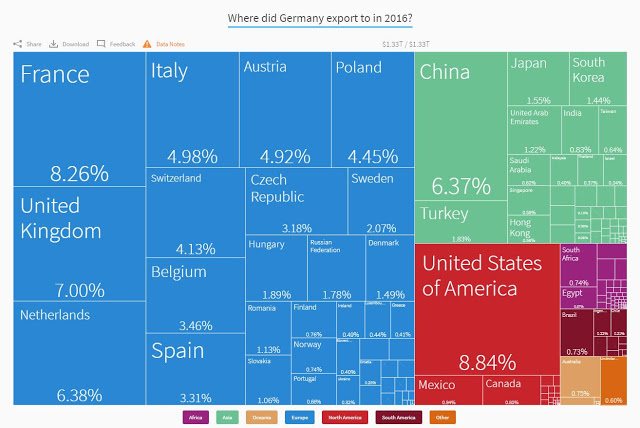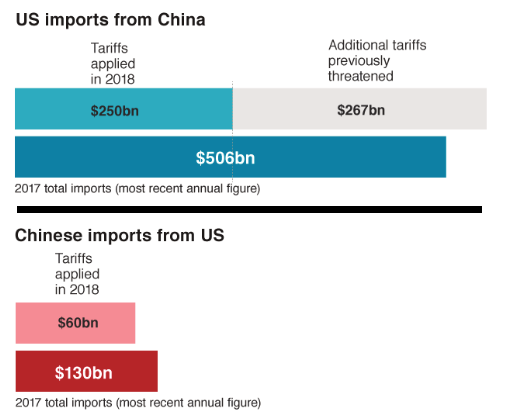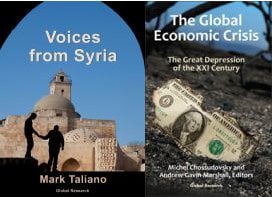Forty years after the Civil War and Emancipation Proclamation it still wasn’t safe to be free and black in Kentucky. For Celia Mudd, who was born into slavery but had inherited the Lancaster farm in Bardstown, it was time to defend her rights. Here is chapter four of a new work in progress called Inheritance.
***
Celia awoke suddenly after a fitful sleep that climaxed with images of an angry mob storming the farmhouse. Even half-conscious she knew it was just her imagination. Still, the first thing she did was rush to the window and check outside.
Nothing had changed. From the front of the two-story building she could see the courtyard, the open gate at the edge of the property, and beyond that Plum Run Road winding toward Bardstown. The only person around was young Sam, her half-brother, humming absently as he led a buggy out of the barn.
In the dream a terrifying crowd had surrounded her home, torches blazing, taunting her to come out and meet her maker. Some wore Klan hoods or masks, but many of the faces were recognizable in the flickering light. Horrified, she saw neighbors, white folks who had never expressed anything remotely like this kind of rage. And respected pillars of Bardstown, people who always treated her with, if not convincing respect, at least a formal civility. Now they were out for her blood.
It was like one of those awful tales Celia often read in the papers. Usually, the victims were kidnapped from jail in the middle of the night and strung up at the edge of town, left there for children to see on their way to school. In Shelbyville not more than a year ago, Jimbo Fields and Clarence Garnett had been lynched from a railroad trestle less than a mile from the center of town. The next day they were still hanging when Methodists from all over the state arrived for a convention, a gruesome reminder of southern “justice” and what could happen to blacks when whites needed someone to blame.
They were just boys, teenagers accused of killing a white man who sometimes shared a bed with their mother. But they got no trial. The jail was stormed within days of their arrest.
No one was threatening Celia, at least overtly. But whenever she thought about the trial that would start today, she couldn’t help but suspect that if the verdict went in her favor, night riders might someday come for her and her family. Dozens of black folks had met Judge Lynch in the last few years. In fact, things seemed to be getting worse rather than better. Forty years after the Emancipation Proclamation and it still wasn’t always safe to be free and black in Kentucky.
“Mornin’, Miss Cely,” shouted young Sam from the yard. “When we goin’ to town?”
The words jerked Celia back to reality, reminding her that, no matter what her private fears, this day could not be avoided. It had been coming for almost a year, since the moment Boss Sam signed his will. At times she wondered whether, if she’d known in advance what he was planning to do, she could or would have tried to stop him. Very likely, Sam would not have taken kindly to such talk. Even on his best days, when he wasn’t raving about his brother’s greed or some plot against him, the old man wasn’t one to accept advice once his mind was made up. Beyond that, though he’d confided in his final months that she was the only person on earth he truly trusted, he rarely let Celia forget that she was also a servant.
But Celia was no one’s servant anymore. She was the mistress of this house, for the moment. And as such, she had no time to be paralyzed by nightmares.
“Mornin’,” she replied, waving at the shy, sturdy young fellow. Very much like his father, young Sam was large, light-skinned and handsome. Also like Jack Barnes, the quiet giant who had married her mother after the Civil War, he treated Celia with a deference that made her feel responsible and oddly maternal.
“Things don’t get started til about ten,” she explained. “Lawyers don’t keep the same hours as farm folks.”
Sam guffawed, half-embarrassed to have a laugh at the expense of those intimidating men in high collars and stiff suits. “I know it,” he said. “But mama say you got to talk with mista Halstead. She tol’ me to git Ezekiel hitched up and ready to go by nine.”
“Well, mama knows best.” The remark carried a hint of skepticism Sam didn’t catch. Celia turned away from the window, grabbed her housecoat, and rushed through the dining room. Beyond it was the breezeway that connected the main building to the kitchen. She could hear clattering dishes and smell sausage cooking on the fire.
“Mama, you at it already?”
“Somebody’s got to get this family going,” replied Emily. Celia rolled her eyes and marched in to find her mother happily setting the table.
She had asked Emily to stay over last night, but hadn’t counted on her taking charge. She should have known better. At 69 years old Emily Barnes was as active as ever. She lived on a five acre plot down the road, managing not only to take care of her own home and good-natured, though somewhat lazy man, but also to help sister Annie with the cooking down at the Talbott Tavern, plus keep Celia on her toes.
Sometimes it was irritating to have her mother set the pace. Emily could barely read, knew nothing about business, and didn’t understand the complexity of managing an 840 acre farm, with a foreman who wasn’t used to being told what to do by a Black woman he didn’t consider his equal. Then again, Emily’s specialty had always been getting people, especially men, to do what she wanted, an area in which Celia had scant experience.
Nat W. Halstead was a good example. As executor of Sam Lancaster’s will, the prominent local lawyer was supposed to represent Celia’s interest in the case. But he rarely discussed it with her, preferring to develop strategy with Sam’s cousin Button Willett. When she asked Halstead to explain exactly what Robert wanted to prove in court, he simply told her not to worry.
“He’s just jealous of your good fortune,” said Halstead, using the just-folks manner that worked so well in the courtroom. “So he’s claiming the will isn’t legal. Robert never did agree with anything Sam did. Why would he start now? You let us handle it, Miss. The law is men’s work.”
But it’s my life, she thought back then. I’m the one everybody whispers about. I’m the one they think stole this white man’s inheritance. But she didn’t say it, and might have entered the county courthouse without understanding the real issues if not for her mother. One day, as Halstead and his crew were leaving Talbott Tavern, Emily ambushed him outside, sweet as pie but impossible to shake. Without a hint of aggression she made it clear that if he didn’t want to bring his main client into his full confidence, maybe her daughter needed a different lawyer.
It would be sad, she said coyly, since he had always been such a friend to the Negro people and was clearly the best person they could hope to find. It was part threat, part seduction.
The next day Halstead was at the farm having tea and outlining the history of the case. What Robert’s lawyers hoped to prove was that his brother wasn’t competent to understand the will he had signed. They probably wouldn’t make a direct attack on Celia in court, but they would attempt to show that Button Willett arranged everything and that the people who witnessed the will weren’t qualified to know whether Sam was right in the head. They would bring in doctors and friends to say he’d gone crazy. Why else would he leave almost everything to a Negro servant?
It wasn’t a bad argument. She could hardly believe what he had done herself.
“You go back and get into that pretty blue dress,” Emily commanded, then swept back a whisp of wavy grey hair. Celia could see hints of the light brown that had helped make her a striking sight in her youth. “And don’t forget a coat,” she said. “It may look like summer but it’s still February.”
“Right, mama. But you told Sam I had to talk with Halstead today. I thought we had everything worked out.”
“Sure, them men got things worked out for themselves. But this is your land Celia, and you got to make sure that old boy knows who he’s working for. People saying you tricked Boss Sam.”
Celia wanted to argue, but what was the point? For Emily, the issue wasn’t what a judge or jury thought, but what people in Bardstown believed. As she saw it, Celia’s honor was on trial. In a way she was right. But a lawyer couldn’t do much in the court of public opinion. That was a case Celia had to win on her own.
While dressing her mind raced over the same questions she had been asking herself for weeks. Could they win against such a formidable opponent and his herd of lawyers? Robert had spared no expense on his team. But more important, would the jury be fair? Could a group of white folks, trying to decide between the claim of a black servant and the charges of a respected white banker, see the truth and do what was right? Did her dedication to Boss Sam and the Lancaster family for all those years count for anything?
She stared at the mirror and carefully examined what the jurors would see. She wasn’t used to evaluating her own appearance. She couldn’t escape the feeling that it was giving in to the sin of pride. But everything had to be right today.
Could the jury and townsfolk believe that she had taken advantage of a dying man? It didn’t seem possible. Yet when land and money were involved, people often suspected the worst.
Satisfied that she was ready, she returned to the breezeway and ate quietly as Emily prepared for the trip. Afterward she visited her old bedroom behind Boss Sam’s, passing on the way through the formal dining room. Jim Hardy was sitting at the long table and nodded somberly. The stoic foreman, who used to take meals with Boss Sam and the white guests who often stayed at the farm, now preferred to eat alone.
In the tiny cubicle Celia sat on the bed and closed her eyes. She knew the place by heart: narrow bed by the wall, marble-top table with a crock pitcher and wash basin, and her primitive, hand-carved rocking chair. This dim, windowless space had been her private world, and also her prison from the age of thirteen, when Ann Lancaster brought her in from the cold, two-room former slave cabin.
A few months after Sam passed on she had moved into his old room, the bedroom across the room from the parlor. Moving to the chair in front of the fireplace she fingered her rosary and said a prayer for Missus Ann, her former master and earliest teacher. She also prayed for Ann’s troubled son Matt, a man-child who never emerged from the shadow of his two domineering brothers. He had died in her arms nine years ago.
And she prayed for Boss Sam. Ah, Sam! She couldn’t remember a time when he was not at the center of her life, as owner, mentor, employer, object of her juvenile infatuation, or general architect of her fate.
Before she knew it, Emily summoned her to the buggy. Young Sam had changed into button shoes and a too-tight Mayfield suit on loan from his father. Holding the reigns, he reached down to help Celia aboard, eyes wide as he contemplated his first time inside the Nelson County Courthouse. The impressive new building had been constructed less than ten years ago, replacing the old stone courthouse that had stood at the center of Bardstown for more than a century.
The story was that in 1785 William Bard had donated two acres for a courthouse, jail and other public buildings. At the time the town was known as Salem, and most of the land was owned by William’s brother David and one John Cockey Owings. David Bard was from Pennsylvania and never lived in Nelson County, instead receiving a thousand acres through a grant from the governor of Virginia. By the time William arrived to look over the location and dispose of some property, the population had grown from an initial settlement of 33 to more than 200. That meant it rivaled Louisville and Lexington. In return for the gift, the town was renamed for its benefactor.
Bardstown grew and prospered over the next decades as immigrants from Maryland, Pennsylvania and Virginia, even some New York and New Jersey adventurers, were attracted by its emerging reputation as the Athens of the West. Despite frontier status it became known as a genteel oasis in the wild bluegrass region. Schools flourished, first a grammar school, then Old Town Academy, the Female Institute, St. Thomas Seminary and St. Joseph’s College, eventually making the town famous throughout the South.
Catholic missionaries also put down roots, eventually drawing enough attention to have Bardstown designated as one of four new dioceses in 1808, right up there with Philadelphia, Boston and New York. Then came St. Joseph’s Proto-Cathedral, built about ten year later, complete with golden tabernacle and candlesticks, not to mention a dozen paintings said to be donated by Pope Leo XII and both French and Sicilian royalty.
By the time Celia was born the glory days were over. The seat of the diocese had been moved to Louisville as a steamboat-driven commercial explosion made it the commonwealth’s first city. People slowly drifted away, leaving Bardstown with faded memories of a noble past. That imposing courthouse, encircled by a diminutive cityscape, served as a reminder of earlier grandeur. For people like Young Sam and Celia, who thought of justice as a faint promise too often betrayed, it was a sterile monument that held little relevance and a hint a dread.
They barely spoke at the start of the five-mile trip, trying to enjoy the sunshine and unusually mild weather. The road was rough with potholes from the winter months. The tree-lined road looked bleak. Emily had her rosary out, praying the mysteries from the annunciation to the coronation. But Sam couldn’t restrain himself for very long.
“Is they gonna take the farm away? Mista Hardy say people in town’s pretty mad at you.”
“I guess that’s right,” said Celia. “But we get a trial, and they have to prove that Boss Sam’s will ain’t right. That’s not so easy to do. In the meantime we stay where we are.”
Sam said it didn’t seem fair for Robert Lancaster to win. “He never cared about that old place.”
“Well, there’s fair and there’s the law. And they’re not the same thing,” Celia said.
“And then there’s Kentucky law,” Emily added. They instinctively knew what she meant. The law of the gun and the rope. It had even claimed the life of the state’s last governor, burning in the state’s image as an outlaw land where feuds were bloody and not even a powerful white politician was safe if he made the wrong enemies.
The assassination was still big news three years after the fact. Attorney General William Taylor, who was ultimately declared the loser to William Goebel in the election for governor in 1900, had fled the state after being charged as an accessory in the murder of his rival. Three men convicted of the crime, one of them the Republican former secretary of state, had appealed the verdict and won new trials. Most people felt that original judge was biased, most jurors were Democratic loyalists, and some witnesses had lied. The quarreling was so fierce that people sometimes shot each other dead. Businesses were breaking up, even churches were coming apart.
Governor-elect Goebel was shot while walking to the state capitol just days before he was supposed to be sworn in. For some it was justice, those who called him Boss Bill and claimed that he had ruthlessly murdered a man, an old Confederate fighter and fellow Democrat, on the streets of Covington. Ruthless murderer or not, Goebel went free and his victim’s wife went insane. They also said he was trying to impose a one-party tyranny on the state, using the new Board of Election Commissioners to stack local precincts and control the race for governor. He was a German blueblood, they said, a demagogue devoted only to the pursuit of power.
Maybe some of it was true. But as Celia saw it, he was also trying to change things for the better, challenging the Louisville & Nashville railroad’s hold on the state and fighting for the common man. The Republicans had gone too conservative, and the Democrats needed someone like Boss Bill to shake them up. Whatever his faults, Goebel certainly didn’t deserve to be killed. If things had gone much further, it could have led to another Civil War in Kentucky, this time with the fighting along party lines.
It took three days for Goebel to die. In the meantime Taylor, who had been sworn in as governor based on the Election Commission’s initial findings, called out the militia and declared a “state of insurrection.” His apparent plan was to stop the investigating committee appointed by the legislature from delivering its report that Goebel had actually won the race. Armed soldiers blocked Democratic lawmakers from entering the capitol. They met anyway, in secret with no Republicans on hand, and declared the dying man governor. His only official act was to order the militia home and call the legislature back into session.
The new administration quickly assembled its own militia, facing down the Gatling guns pointed across the capitol lawn. Thousands of men stayed out there for two days, neither side looking ready to budge. But once Goebel was dead tempers cooled a bit and everyone involved decided to let the courts settle the issue. The decision took months, and that left the state with no one in charge, a formula for more chaos.
When the smoke eventually cleared and the US Supreme Court had spoken, Kentucky had a Democrat as governor after all: John Crepps Wickliffe Beckham, lawyer and bluegrass aristocrat, Bardstown native and, at 30 years old, the youngest man ever to hold the office. They called him the Boy Governor. But when it came to politics Beckham was no sapling. He had already been Speaker of the House and managed to get himself on Goebel’s ticket as lieutenant governor.
Things settled down after that. But in Bardstown the hostility that had sparked Kentucky’s latest brush with war was still close to the surface. Some considered Beckham a source of pride, a local boy trying to bring his state back from the brink, a cautious reformer who talked about stopping child labor, training more teachers, and regulating the insurances companies. He also had bitter enemies, among them another Bardstown-born power broker, Ben Johnson, a wealthy Catholic challenging him for control of the party.
Celia had no illusions about the new governor. She believed the rumors about his support for segregating Berea, the last integrated college in the south, and how he had stopped going after the railroads to get elected. Just last year he had supported a law eliminating the right of women to vote in school elections.
What could you expect, she thought. The people who ran this state didn’t even think a judge or sheriff who did nothing to stop a lynching should be cast out of office.
Many locals also worried that Beckham might come out for prohibition. Support had been growing for years in the home of Bourbon. In Bardstown, the state’s distillery center, the debate divided neighbors and families. Too many jobs and too much money was at stake. Celia had been a prohibitionist for as long as she could remember, yet never dared to voice her opinion to Boss Sam. What could she have said? Close down the Lancaster distillery, one of the family’s main sources of income, because Demon Rum was a destroyer of lives? Because it had played a part in killing Sam’s own brother. He had often made his views plain: it was just business, not a moral quandary. And anyway, you could never legislate drinking out of existence.
After Emily’s comment about Kentucky law there wasn’t much more to say. If Celia lost in court, she’d be out of a home, a Black woman with no prospects and nothing to show for decades of service. But at least she might be safe from the anger of all those white folks who thought she had slept with a crazy old man to steal his land. If she won, on the other hand, last night’s dream might well become reality.
She sat erect as they approached the courthouse, determined not to reveal her fear. The streets were packed, a tangle of horses, buggies and whispering, finger-pointing pedestrians. The curious had come from as far as Louisville some 40 miles away. A large contingent had also made the trip from Marion County, since one of its prominent citizens was the plaintiff. Most people considered the outcome of the proceedings a foregone conclusion. After all, R. B. Lancaster was the only legal heir, blood kin. And Celia Mudd was just a nigger, a former slave at that. And still, the air bristled with anticipation. The mood combined the rough-and-ready gaiety of a carnival with the anxious energy of a high-stakes horse race.
Young Sam reined Ezekiel to a halt directly in front of the courthouse. For a long moment no one moved. Celia turned her head slowly, taking in the cluster of lawyers, white matrons in their bustled overskirts and high top shoes, sour-faced husbands, and her own clan, much more modestly attired as they huddled beside the door. Everyone was watching her. The silence was unnerving. But she forced back a frown, took a deep breath, and nudged Sam to get moving.
Leaping off, he rushed around to the brick sidewalk, helping Celia and Emily down from the buggy. As he did so, Celia could feel his whole body shaking. “Don’t fret, little brother,” she whispered. “At least we’ve got God on our side.”
She didn’t really believe that God took sides in court, but knew it would calm him down. Then she linked arms with her mother and walked defiantly through the crowd.
The Rest of the Story
It was an epic trial, dramatized in Celia’s Land, written with Georgia Davis Powers, and in my new book, Inheritance. Both also explore Celia’s life at the Lancaster farm in the years between 1865 and the early Twentieth Century.
On February 28, 1903, to the surprise of many Nelson County residents, an all white, all male jury ruled that Sam Lancaster’s will was valid. Predictably, his brother Robert challenged the decision and the case continued for four more years. He and his sons eventually took their complaint to the state’s highest court, the Kentucky Court of Appeals. But before all the testimony could even be reviewed, Robert Lancaster died in May 1904.
His two sons still didn’t give up. But in February 1907 Celia finally prevailed when the Appeals Court decided not to reverse the original ruling. Now a landowner, one of her first moves was to borrow $13,000 from the local bank, a loan she repaid in just three years. She also sold 325 acres. Having learned from Sam, and gradually assuming direct responsibility over the years, she had become a competent business woman.
Some locals never accepted her. Sometimes she would pick up the phone and hear women gossiping on the party line. But the night riders never came, and Celia ultimately became known as a respected and generous member of the community.
After Sam’s death she began a second life: the quiet, dignified manager of a working farm. Charles Crawford, a ruggedly handsome widower who lived on Plum Run Road, soon took a serious interest. Although much younger, he actively pursued Celia at first by driving her to church at St. Joseph’s Cathedral. They finally married in 1910 and remained together for thirty years.
Over the next decades Celia became a role model and a benefactor, especially for members of her family. When her sister Annie’s husband died, leaving her with six children, Celia said not to worry, and paid for three of the girls to attend a Catholic school in Ohio. Two of the older boys got jobs on the farm. When the family of another sister became destitute after her husband sustained a back injury, Celia bought them a home.
Beyond employing and helping family members, she especially encouraged the girls to get an education. Some attended St. Monica’s Colored Catholic School, walking miles to school in shoes she bought for them. Celia never did have biological children of her own, but she became a surrogate mother for many.
“I want my people to progress,” she often said, “and the only way they can is to have an opportunity for an education. If it means leaving the county, so be it.” Fortunately, Celia didn’t have to leave, and lived long enough to see many nieces and nephews graduate from high school. Another achievement in an amazing life.
*
Note to readers: please click the share buttons below. Forward this article to your email lists. Crosspost on your blog site, internet forums. etc.
This article was originally published on the author’s blog site: Greg Guma/For Preservation & Change.
Featured image: The former Lancaster home, inherited by Celia Mudd in 1903.
